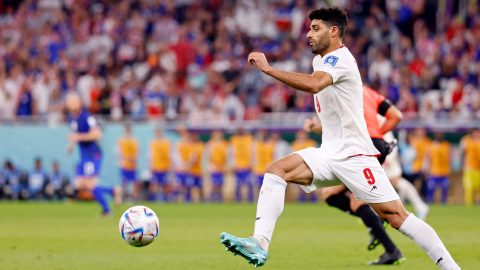Germany is comfortably sitting on top of the soccer world.
The reigning FIFA World Cup winners defeated Chile 1-0 on Sunday at St. Petersburg Stadium in the 2017 FIFA Confederations Cup final. The victory clinches a trophy that had previously eluded Germany, and they won it with an experimental, young squad of players who weren’t among the 2014 World Cup icons. Instead, they’re 2018 World Cup hopefuls, who just boosted their chances of playing for their country next summer.
Lars Stindl scored the winning goal in the 20th minute by tapping home Timo Werner’s delivery, which came after the Germany forward capitalized on Marcelo Diaz’s fatal error. Why Diaz, a midfielder, made such a bad decision in that area of the field, is a head-scratcher.
Chile controlled most of the game and created more chances than Germany, but the eventual tournament winners defended capably and held off the champions of South America. The fact is, just a scant few of those opportunities posed genuine danger to the Germans.
Here’s what Germany’s 2017 Confederations Cup final triumph means.
For Chile
Having won the CONMEBOL Copa America in 2015 and the Copa America Centenario in 2016, Chile missed the chance to confirm itself as the “best team in the world” by winning the Confederations Cup, but its reign of summer fun is over.
We now must wonder whether Chile is past its peak. Chile had the oldest team in the Confederations Cup, and the stars who comprise its golden generation are either nearing, or already have surpassed in most cases, age 30.
Chile will contend to win the 2018 World Cup, but its Confederations Cup final loss and its performances throughout the tournament suggest “La Roja” will lack what it takes to win. The margins between winning and losing are thin in international soccer, and Chile plays an intense, high-pressure style. Father Time might be calling on this group to divorce from its on-field identity, but we won’t know until July 2018.
For Germany
Head coach Joachim Low won the Confederations Cup with the youngest team in the tournament, as the German boys donned their national-team jerseys and became “Die Mannschaft.”
The Confederations Cup win probably means more for the individual players than it does the national team itself. The likes of Golden Boot winner Werner, Golden Ball winner Julian Draxler and fullbacks Jonas Hector and Joshuah Kimmich lifted themselves from potential World Cup 2018 squad players to probable starters next summer. The other German Confederations Cup winners also will vie for places in Germany’s squad next summer.
Germany became the first reigning World Cup winner to win the next Confederations Cup. The victory will boost the hype around Germany’s 2018 World Cup team as well as grow the bulls-eye on its back. It’s a great problem to have.
For the 2018 World Cup
Germany won in Russia, the host nation of the Confederations Cup and 2018 World Cup.
Thumbnail photo via Tim Groothuis/Witters Sport/USA TODAY Sports Images



